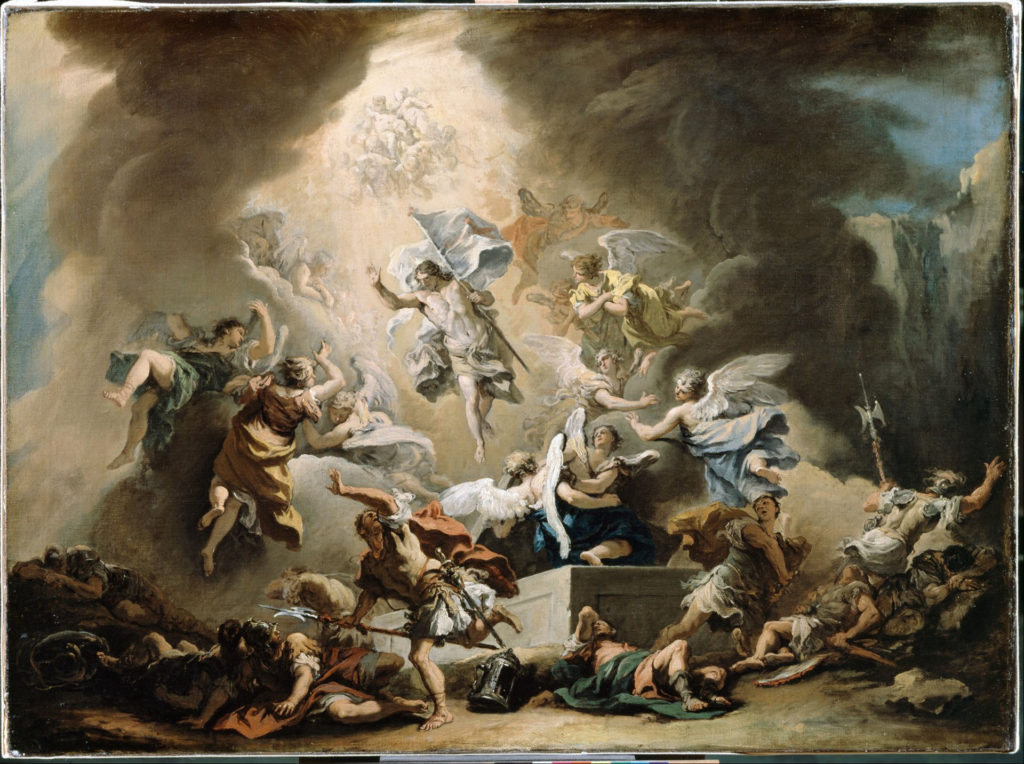
From the annual liturgical cycle focusing on the life of Christ and the commemorations of his valiant saints to the mysteries that touch us personally in baptism, at the Divine Service, and in holy matrimony, there is no lack of wonder at the mighty acts of God through the liturgical year. And yet perhaps the greatest liturgical moment for the proclamation of God’s salvation is the Christian funeral, where the triumph of Jesus rings out most gloriously in the face of death.
For this reason, many Christians find it edifying to participate in planning their funeral service. You might consider the hymns or scriptural passages that have meant the most to you and write them down in a place disclosed to your close relatives. Not only will this forethought be a blessing to your loved ones who yearn for the comforting message of the Gospel, but it will also take some of the burden off of them when the time does come to make these choices. They may appreciate the guidance and insight into your wishes.
How to Get Started
When it comes to planning your funeral, your pastor is your best guide and resource. He will point you in the right direction as you figure out what will be helpful for your family to have thought out already when you die. In some cases, the pastor will have a whole planning resource to give you that you can read and where you can fill in blanks as necessary. He might sit down with you and look through hymn and reading recommendations or ask that you simply write down your wishes, which may be incorporated into the service.
Your pastor will have additional resources that he uses when planning a service, such as the Lutheran Service Book: Agenda, which offers suggestions for readings, hymns, and even templates for one’s obituary. With the purpose of the funeral in mind—to proclaim Christ’s victory over death and comfort for your loved ones—you might still have a few special elements you would want included in your funeral. Here are some examples of points you might bring up when speaking with your pastor:
Before the Service

Preparation of the Body
Before the funeral itself, you may discuss with your pastor the options for how your body will be cared for after your death. In addition to the guidance he has, we have found this book, A Christian Ending: Ancient Christian Handbook, to be an interesting and informative treatment of the history of Christian burial and a useful guide for making decisions about the handling of your body, embalming, etc. It is written by a lay couple in the Eastern Orthodox church that leads and trains teams of people to care for Christians from the moment of death to burial, often at zero cost to the family. While not everyone wishes to forego typical funeral home services completely, the book illumines more options for degrees of involvement and seeks to show how possible it is to care for our loved one’s bodies respectfully in anticipation of the resurrection. At any rate, it’s a good resource for your consideration in addition to the information your pastor has.
Visitation
Along these lines, you may wish to make note of your wishes regarding visitation and, if given the option, whether this would be held at the church or at the funeral home. Your pastor will be able to offer guidance for this based on local customs and other considerations.
The Funeral Service
Readings
As mentioned above, your pastor may have a selection of readings to look through, or you might come to him with your own suggestions. Many have found the comforting image of Christ the Good Shepherd to be their favorite image through life and for the funeral service, making Psalm 23 and John 10 popular funeral readings.
Hymns
The hymns sung at a funeral often hold special significance in the hearts of loved ones and offer an opportunity to proclaim the hope of the resurrection in song. You can hardly pick a “bad” funeral hymn from what is provided to us in the entirety of the hymnal, but some of the most beloved selections are often found within the “Easter,” “Hope and Comfort,” and “Trust” sections. Here there are particular emphases on Christ’s victory over death, his guiding hand in death’s dark vale, and a Christian and hopeful resignation to God’s will.

Other Considerations
You might have family members or friends whom you imagine participating in your funeral after you’ve gone to be with Christ. This could be a pastor in the family or a friend with special musical talent, pall bearers, etc. Think through who you would like to be a part of the service, and speak with them and your pastor about your wishes. You can include them in your written funeral wishes, as well, and this will make one less item to think through later!
Finally, many desire to make donations in the honor of someone who has passed. You might choose to name a cause or two where people can direct those funds, be it the church, a school, or another organization.
While planning for your own funeral might seem like an uncomfortable or unwelcome task, we can trust that it is a process that accompanies a life of liturgical living and something worth doing as we journey throughout our Christian lives. We hope that these things provide you with just a few thoughts about how you can do some of that planning and reflection sooner rather than later.
Images:
1. The Ressurection, Sebastiano Ricci, Italy, 1715.
2. Burial of Christ, Carl Bloch, Denmark, ca. 1865.

